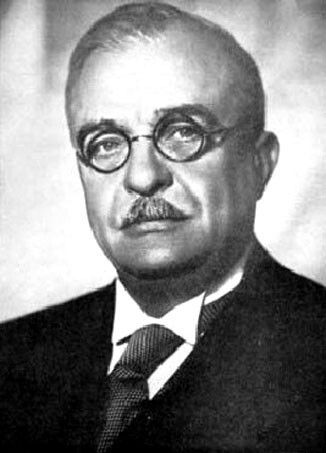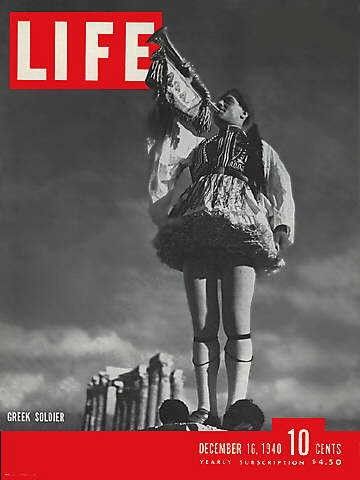Oxi Day – 28th October 1940 – Greece Says No

Oxi Day; The Greeks said No – 28 October 1940
“Oxi” Day, “No” Day, 28th October, is the day when Greece and Greeks everywhere remember the courage of the Greeks who had the strength and determination to say “OXI”- no, to the Italian Fascist leader, Benito Mussolini, known as “Il Duce”.
On 28th October 1940, the Italian ambassador to Greece, Emanuele Grazzi, at a little after three in the morning, after returning home from a party at the German Embassy in Athens, phoned Ioannis Metaxas, (Greek general and dictator, serving as Prime Minister of Greece from 1936 until his death in 1941), delivering an ultimatum.

Benito Amilcare Andrea Mussolini (29 July 1883 – 28 April 1945)
Mussolini, Italian politician, journalist and leader of the National Fascist Party, ruled Italy as Prime Minister from 1922 to 1943, he ruled constitutionally until 1925, when he dropped all pretense of democracy and set up a legal dictatorship.
Known as Il Duce (The Leader), Mussolini was the founder of Italian Fascism.
The ultimatum made by Benito Mussolini demanded that Greece allow the axis forces (Germany, Italy, Japan) to enter and annex key locations in Greece.
The alternative was war!
Metaxas, the Prime Minister of Greece at the time, answered with one word, a resounding “Oxi” (No), and later added, in French:
“Alors, c’est la guerre!” (Then it is war!)
An unexpected slap in the face for fascist Italy!

Prime Minister of Greece Ioannis Metaxas 12 April 1871 – 29 January 1941
Greek general and dictator, serving as Prime Minister of Greece from 1936 until his death in 1941.
The Power of No
The comeback of this historic “Oxi”- no, was that the Italian troops, stationed in Albania, at the time under Italian protectorate, at five thirty on the morning of 28th October 1940, invaded the Greek border.
So commenced the Greco-Italian war (Oct.1940-April 1941), leading to The Balkan Campaign of WWII, between the axis powers (Germany, Italy, Japan) and the allies, which later led to the Battle of Greece when British and German ground forces intervened in 1941.
Greece had entered World War II.
Greece managed to stop the initial Italian invasion, pushing the Italian army back into Albania.
This Italian defeat, and Greek counter-attack, was called:
“The First Axis Setback of the Entire War”
The Italians went on to organize a spring offensive in 1941 which again failed.
The feisty Greeks had surprised everyone with their courage and determination.
It shouldn’t have been a surprise though, the Greeks, since ancient times, have been known for their courage and perseverance, they do not give up!

Mighty Greece
World Praise for Greece
The heroic performance of Greece earned them unprecedented praise and respect from many great world leaders.

Praise and respect for the heroic Greeks from world leaders
“When the entire world has lost all hope, the Greek people dared to question the invincibility of the German monster, raising against it the proud spirit of freedom”
Franklin Roosevelt
“Hence, we shall not say that Greeks fight like heroes, but that heroes fight like Greeks”
Winston Churchill
“If there had not been the virtue and courage of the Greeks, we do not know which the outcome of World War II would have been”
Winston Churchill
‘’Historic justice forces me to admit, that of all the enemies that stand against us, the Greek soldier, above all, fought with the most courage”
Adolf Hitler
“The Greeks delayed, by two or more vital months, the German attack against Russia;
If we did not have this long delay, the outcome of the war would have been different”
Hitler’s Chief of Staff
“We thank the Greek people whose resistance decided WWII…
You fought unarmed and won, small against big…
You gave us time to defend ourselves”
Joseph Stalin

The Proud Greek Flag – H Galonoleuki The blue and white – H γαλανόλευκη
This atrocious war persisted for four horrific years; Greece was liberated from Nazi occupation on October 12th 1944 but before it had time to recover it was once again plunged into war.
The Greek Civil War, (December 1944–January 1945 and 1946–49), a two-stage conflict during which Greek communists unsuccessfully tried to gain control of Greece.

Greece was liberated from Nazi occupation 12 October 1944
Every 28th October Greece celebrates “Oxi” day, a public holiday and from the smallest village, to the largest town, proud Greeks, flock to the streets, to admire school children, patriotically dressed in blue and white, the colours of the Greek flag, “H γαλανόλευκη” (H Galanoleuki) meaning the blue and white.
Local brass bands and the Greek army parade through the streets.
A day when all Greeks remember the motto of Greece:
“Freedom or Death”

Greek Presidential Guard, and, the Greek flag flying.
Greece would undoubtedly say no all over again.

Greek soldier on front cover of Life magazine
When the Greeks said no
1940
The Greeks fought, with “Palikaria“, not only for Greece but for Europe, a united, peaceful, free Europe
If it wasn’t for that one Greek word, “Oxi”, who knows under whose rule Europe would be today?
Related Post:
Greek Independence Day: Freedom or Death



